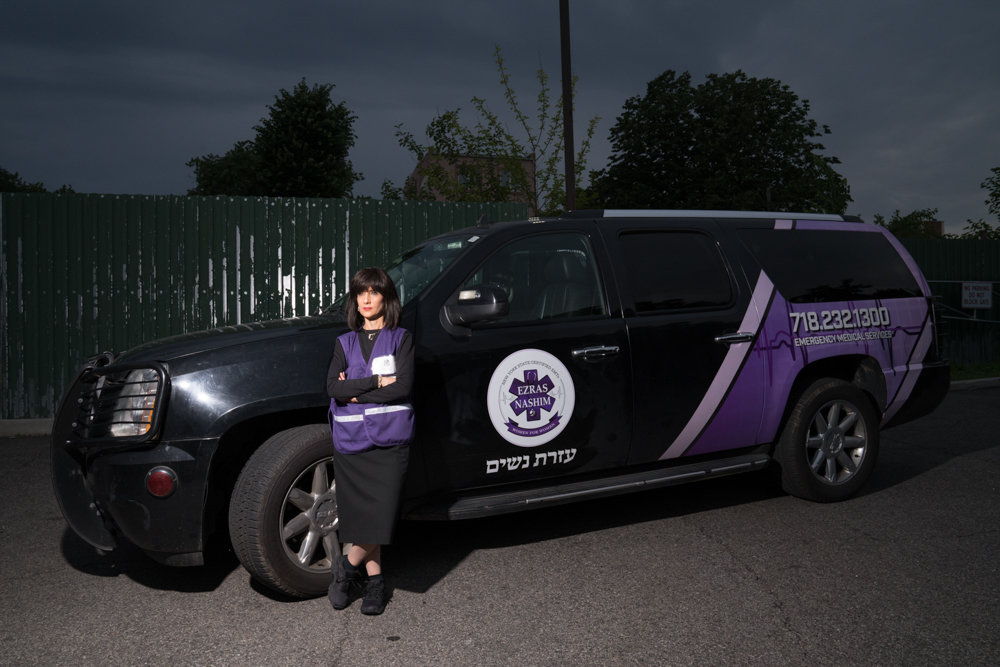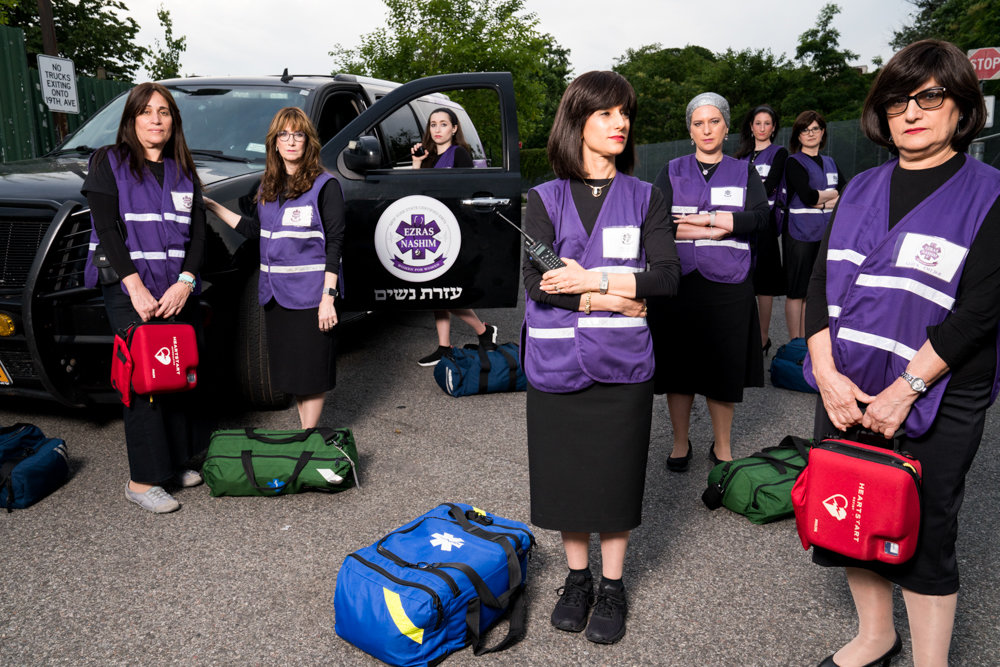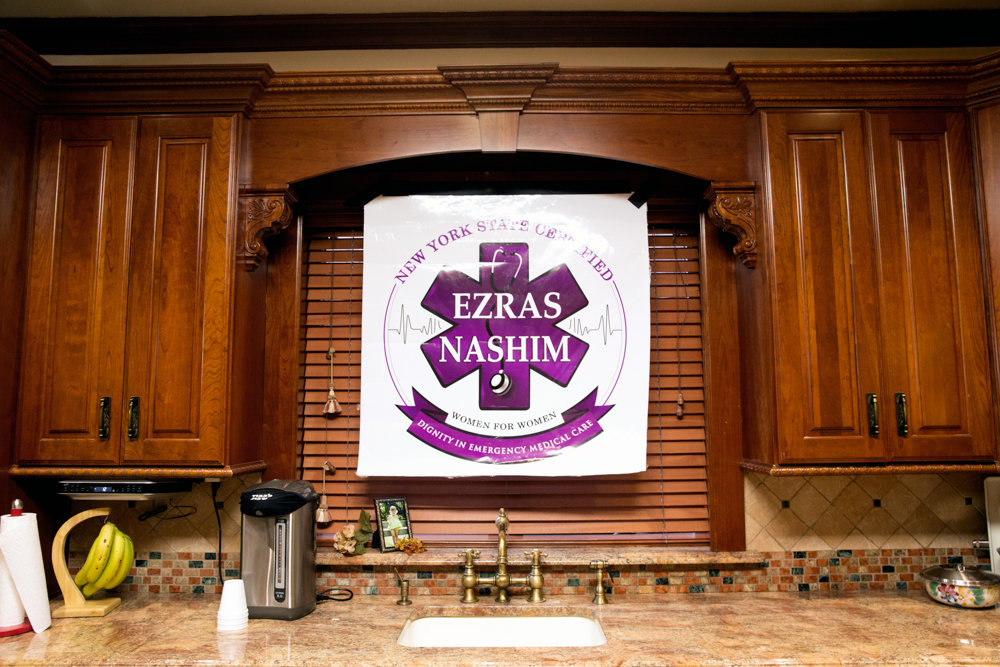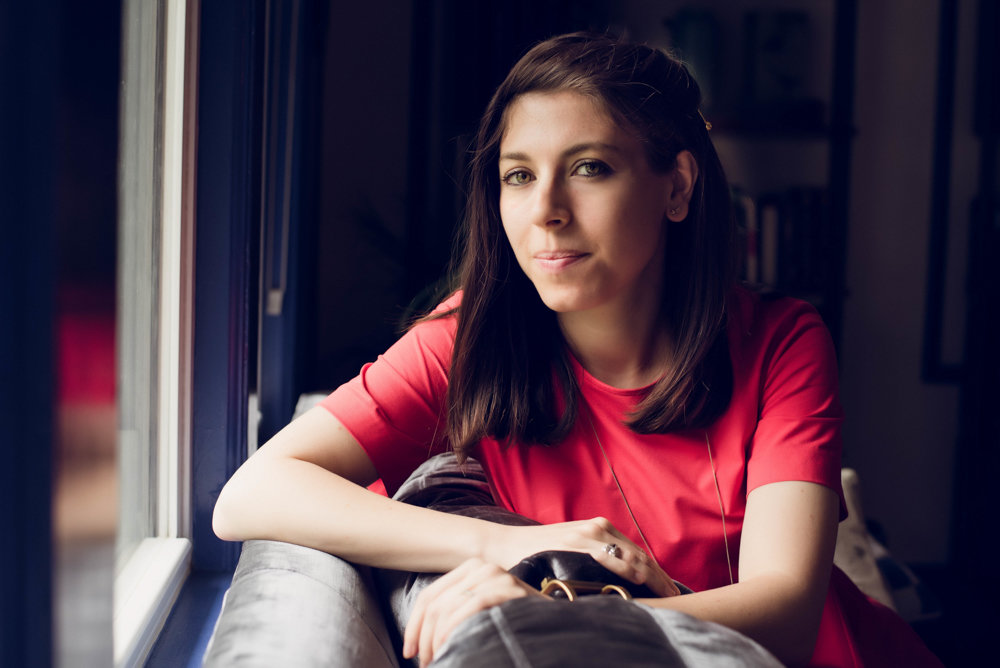Who ya gonna call when a woman’s life is on the line?
When someone suffers a heart attack or a child chokes, the ambulance is literally the difference between life and death.
For the Orthodox Jewish community, however, a different type of ambulance is preferred — one the all-male Riverdale Hatzalah, part of a larger citywide service, has provided since 1989.
But what about women? That’s exactly what a Brooklyn woman asked a few years ago, and Ezras Nashim — an all-female Jewish emergency medical service was born.
Ezras Nashim hasn’t quite made its move into this part of the Bronx just yet, but the ambulance service is making its way to The Bayit on Feb. 24 as the star of a new documentary, “93Queen.”
“It was really, really rewarding, and we were definitely making a groundbreaking film about a groundbreaking endeavor,” said Paula Eiselt, the documentary’s director. “We knew it was going to be hard and it was going to be really difficult and that we were doing something that was considered taboo.”
Rachel Freier, Ezras Nashim’s founder, worked together with Eiselt for five years to complete the documentary.
The Ezras Nashim is the first of its kind, and in short, the female version of the Riverdale Hatzalah.
Freier was inspired to create Ezras Nashim after their own Hatzalah chapter wouldn’t allow women to participate in their service. Rabbi Steven Exler thought the film was important to show because it reflected very well the ideals of the Hebrew Institute of Riverdale.
“We are particularly excited to be screening this film at the Bayit because it represents the intersection of so many of our values — women’s leadership, communal responsibility and saving lives,” the rabbi said in a statement.
When Freier started her emergency medical service in 2015, she had no idea Eiselt would come along for the ride. Growing up Jewish, Eiselt understood the pushback Hasidic women sometimes receive in their community when they pursue things outside their cultural norm.
Eiselt attended film school at New York University, and it was that interest in film that allowed her to identify with Freier’s struggle establishing a female-centric ambulance service. When Freier, creating Ezras Nashim not only caters specifically to the medical emergencies of women, but also gives women the space to be caretakers.
“Right now we operate as a life support agency and people call us,” Freier said.
“We have EMTs, (but) what we don’t have is our ambulance. But the city of New York backs us up.”
The mother of six is looking to get Ezras Nashim its own ambulance, but for now, the women use their own vehicles and a van to race to emergencies.
In Eiselt’s Long Island community growing up, it never occurred to her women were not part of Hatzalah. Still, convincing Freier to take part in the documentary wasn’t easy.
“Initially I was very resistful,” Freier said. “In the Hasidic community, we don’t go to movies, and it’s not really common in our community. But she was very persistent and endearing and convinced me that if I allowed myself to be filmed, I would be breaking stereotypes about Hasidic women.”
Part of the reason Freier started a service that was by and for women was because she wanted to offer women medical treatment in a comfortable setting. It also would allow her to honor the tzniut, Jewish laws concerning female modesty, privacy and dignity. Sometimes when men treat women’s medical needs, it could threaten some women’s tzniut,
Ensuring comfort and respect for all female bodies is something Freier considers in her work as well.
“This is a community that is largely misunderstood and stereotyped, and the women are mysterious,” Eiselt said. “I wanted to tell the story from their point of view and give them a platform. It’s what really started this journey.”
A board of rabbis oversees Riverdale Hatzalah, co-head coordinator Jeff Moerdler said, who believe the service is best when staffed by men, out of religious concerns. Although it was originally founded to serve the Orthodox Jewish community, today Hatzalah responds to anyone who calls, regardless of gender or religion. Moerdler has volunteered for 15 years now, and finds this line of work requires much more than an understanding of medical issues.
“It takes a lot of compassion and a willingness to help people,” Moerdler said.
“Hatzalah has been here for 29 years, so I’m not sure there is a tremendous need for (Ezras Nashim) locally. But then again, I’m not all that familiar with them.”
“93Queen” has prompted some women to wonder why they don’t have a similar service in their community, Freier said. In fact, Exler hopes to encourage those kinds of questions in Riverdale.
“I think that, at its core, it’s about change from within,” Eiselt said. “And it’s about how communities change from the bottom up. It’s a universal story.”













